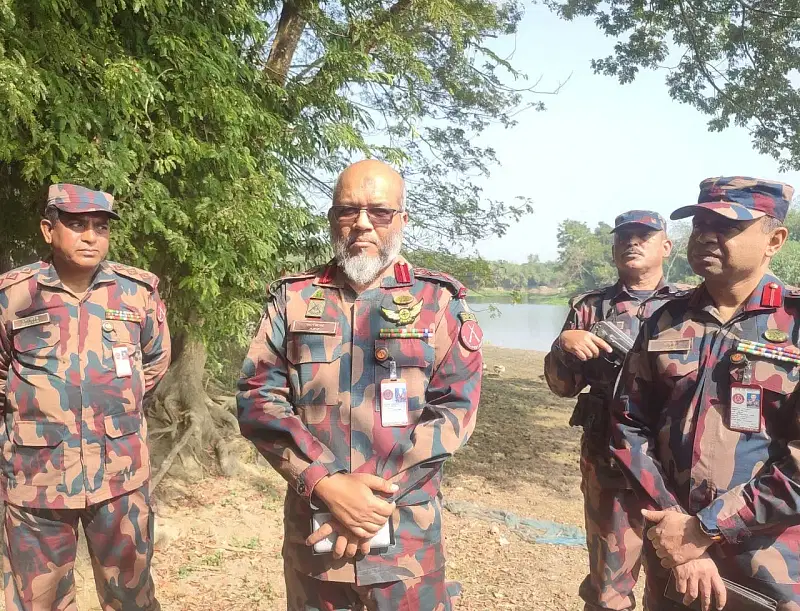
The Border Guard Bangladesh (BGB) has claimed to have regained control over around 5-kilometer stretch of the Kodalia River along the Jhenaidah border, ending the illegal dominance of the Border Security Force (BSF) of India.
According to the BGB, the Bangladeshi nationals had long been denied entry to the river’s particular stretch in Maheshpur upazila of Jhenaidah as it was occupied by the BSF. Even the fishermen were barred by the BSF men from netting fish in the river.
In a press release on Monday, the 58 BGB battalion assured that any Bangladeshi nationals can now freely use the 5-kilometer stretch of the river. However, Indian news outlets reported that the BSF denied the BGB claim, terming it baseless.
Entering Bangladesh from India through the Shyamkur zero line in Maheshpur, the Kodalia river meanders through Bangladeshi territory and reenters India through the Ranghat point. In Maheshpur, the river flows along the border in Matila village of Jadavpur union.
Under international laws, both countries must maintain a 150-yard no-man’s land from the zero line. As per the map adopted in 1961, the 4.8-km stretch of the river falls on the Bangladesh side of the zero line. The adjacent locality is sparsely populated and the BSF took the advantage to establish its control over the river.
It was learned that the BSF used to restrict Bangladeshi nationals from using the river. Mohiuddin, a former member of Jadavpur union parishad, recounted that there was a time when the locals used to net fish in the river. When the people moved away from the bordering neighbourhood due to their inconvenience, the BSF established their control over the river, though it falls within the Bangladeshi territory.
“Farmers were prevented from farming in adjacent land and netting fish in the river. Whenever locals tried to use the river, the BSF would intervene, leading to altercations sometimes,” he noted.
Upon learning about the issue, the 58-BGB battalion verified the border through official documents, local administration, and maps, and lodged a strong protest against the BSF’s illegal dominance. They eventually managed to reclaim control over the 4.8-kilometer stretch and deployed additional forces along the border, along with mechanised boats and all-terrain vehicles.
On Monday, Lt Col Shah Md Azizus Shahid, commanding officer of the 58-BGB battalion, exchanged views with locals and informed them that they can now freely use the river. He thanked the locals for their cooperation with the BGB and urged them to keep the young generation well-informed about the position of the border.
Protest from the BSF
Indian media outlets, including PTI and Anandabazar Patrika, disputed the BGB claim and cited the BSF to term the move as ‘irresponsible’. The reports noted that the 5-km area is considered as Indian territory under the border agreement of 1975, and that there have been longstanding disputes over its control.
In response, the BGB commanding officer said, “The Indian media reports came to our attention. They are spreading lies. We have not received any written or verbal objections from either BSF battalion commander or company commander regarding my press briefing.”
prothom alo









